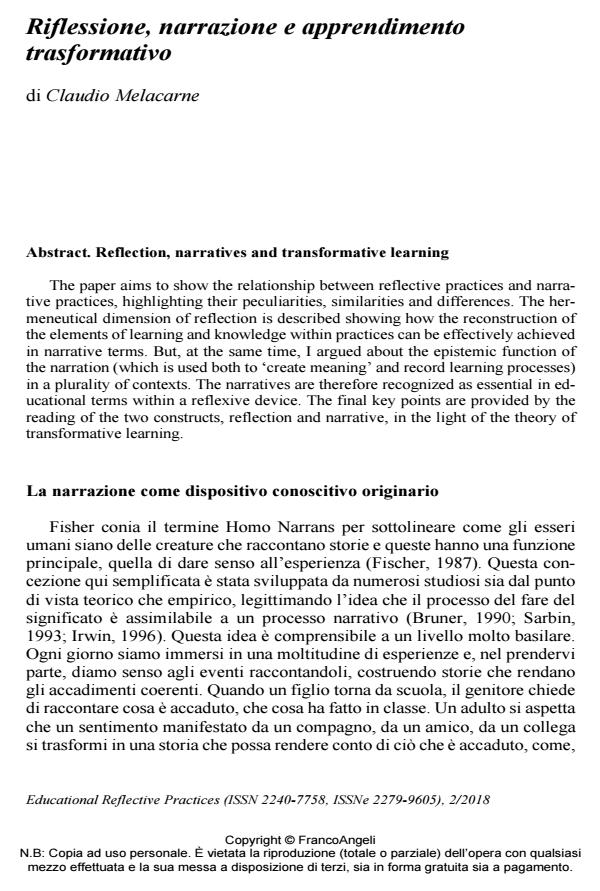Reflection, narratives and transformative learning
Journal title EDUCATIONAL REFLECTIVE PRACTICES
Author/s Claudio Melacarne
Publishing Year 2019 Issue 2018/2
Language Italian Pages 13 P. 201-213 File size 164 KB
DOI 10.3280/ERP2018-002013
DOI is like a bar code for intellectual property: to have more infomation
click here
Below, you can see the article first page
If you want to buy this article in PDF format, you can do it, following the instructions to buy download credits

FrancoAngeli is member of Publishers International Linking Association, Inc (PILA), a not-for-profit association which run the CrossRef service enabling links to and from online scholarly content.
The paper aims to show the relationship between reflective practices and narra-tive practices, highlighting their peculiarities, similarities and differences. The hermeneutical dimension of reflection is described showing how the reconstruction of the elements of learning and knowledge within practices can be effectively achieved in narrative terms. But, at the same time, I argued about the epistemic function of the narration (which is used both to ‘create meaning’ and record learn-ing processes) in a plurality of contexts. The narratives are therefore recognized as essential in educational terms within a reflexive device. The final key points are provided by the reading of the two constructs, reflection and narrative, in the light of the theory of transformative learning.
Claudio Melacarne, Riflessione, narrazione e apprendimento trasformativo in "EDUCATIONAL REFLECTIVE PRACTICES" 2/2018, pp 201-213, DOI: 10.3280/ERP2018-002013